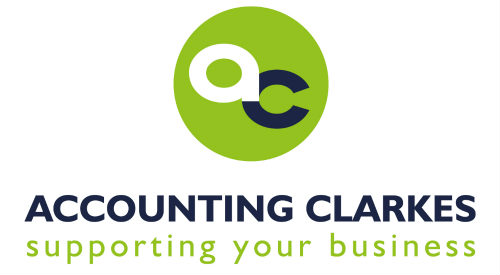

Your finances and wellbeing are linked. They go hand in hand and can either support or, if not careful, impact negatively on each other. If you can find best practices that keep stress at bay from the start; and an external support structure through networking, peers and professional guidance; your business is far more likely to succeed.
Manage business finances: Find the right support
Today, financial support from your accountant goes beyond the filing of your tax return. If allowed to be, a great accountant can be an intrinsic part of your business, your team and your future.
HMRC compliance and comprehension are crucial, of course. But an understanding of your numbers and how they affect your business; and in turn your wellbeing are also vital.
The three most important financial elements to understand are your balance sheet, income statement and your cash flow.
Accountancy need-to-knows
If you’ve found the right accountant to support your wellbeing they can guide you towards a better understanding of your finances.
However, if you haven’t yet found them, here are a few essential guidelines to help until you do:
1. Use accounting software to manage your bookkeeping
This will help expand your knowledge as you go and save you valuable time. For example, some apps use algorithms to allow you to take a picture of a receipt and submit it for processing.
Two great examples of these apps are ReceiptBank aimed towards limited companies and 1Tap, a slightly smaller version for sole traders. Both of these apps enable users to easily manage everyday filing, providing them with more time to spend on growing their business.
Apps such as these remove the manually processing element of accounts. In turn, this lessens the chance of errors and inconsistency. They also eliminate the need for paper filing so are environmentally friendly and space saving too!
This software is also a boon for accountants as, at year end, records are more accurate and up to date. They’re clear and efficient and often presented to us far earlier, taking pressure off all parties at the busiest time of the financial year.
2. Monitor and assess your financial position
Get into the habit of checking your numbers on a regular basis. When consistent, this positive and proactive practice is a reassurance that you’ve got more money coming into your business than leaving it — or if this isn’t the case, that you know why this is.
Make it a priority to know how much is in your business account, how many sales you’ve made that day and, if appropriate, how much stock you hold.
These are all part of efficient accounting practices termed ‘cash flow’ and should be adopted early on in your business, making them second nature as your business grows.
Managing your cash flow is vital both for your business survival and its growth. And to be effective, the timing of these costs need to balance with your income.
Staying on top of late payments is also crucial. Ensure you have clear credit terms and conditions in place and that you issue clear and accurate invoices as quickly as possible.
3. Always meet tax deadlines
To avoid costly fines from HMRC, it’s vital you meet the stated deadlines when filing your returns. It’s entirely possible to save your business money by completing accurate returns, and on time if you plan accordingly.
4. Look after your team
Payroll is likely the most essential financial element for you if you’re an employer. Your business will be less successful without a motivated and happy team, and they will be neither of those if you don’t pay them on time.
It’s now relatively easy to report using the HMRC payroll system. Real-Time Information, or RTI, has been in operation since 2013. It’s far easier to understand and use than its predecessor. An accountant can also provide added support by running through this system and answering any questions with you.
5. Tackle problems when they arise
Facing financial difficulties as a business is stressful, no two ways about it. But help and advice are abundant – nobody wants to see a company fail. Many companies occasionally run into financial difficulties so do not feel embarrassed.
Seek advice from your accountant and tackle issues before they start to affect your health and wellbeing. One of the numerous advantages of welcoming one of the new breed of accountants into your business is that they care about the bigger picture and you, not just the numbers.
Another important step to minimise impact is to face priority debts first and assess how you can improve your cash flow management. Accountants and debt counsellors, among other bodies such as charitable organisations, are an invaluable source of advice and support in such situations.
Knowledge and financial management
The success and subsequent growth of your business can heavily depend on your ability to manage your finances effectively. Planning, organising, controlling and monitoring your finances all help to provide an overall picture of your business’s health.
Great planning can help you make quicker and more accurate decisions, giving you a competitive advantage. It will give both your business and your employees’ stability and confidence to grow.
Knowledge and financial management should become part of the critical processes within your business. But you don’t have to do this alone.
Finding the right accountant pays dividends and goes far beyond the timely filing of your tax return.
If you would like an initial consultation free of charge call us now….